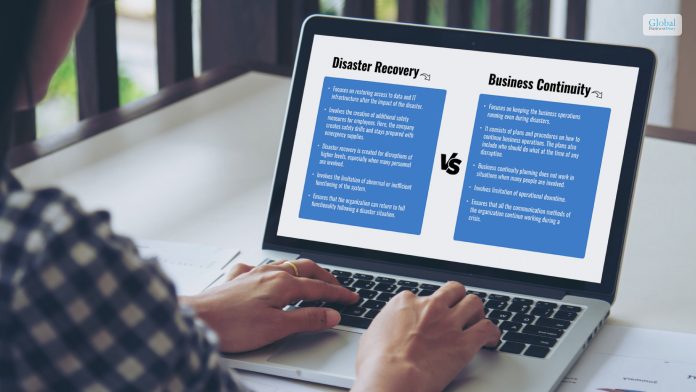The Best Risk Mitigation Techniques For Your Business

Risks in business are inevitable, and with new projects and processes, the level of risks in business increases. This is because there are inherent risks that are associated with the processes of a project. However, there are some strategies that you can follow for risk mitigation. These will help you deal with risks in business that arise with the coming of new projects.
In this article, you will learn some general details about risk mitigation. You will also learn how to plan for risk mitigation in business. Then, we will share with you some of the major risk mitigation strategies to follow. Hence, to learn more about risk mitigation in business read on through to the end of the article.
What Does Risk Mitigation Mean In Business?
According to Indeed.com,
“Risk mitigation refers to the process of planning and developing methods and options to reduce threats—or risks—to project objectives. A project team might implement risk mitigation strategies to identify, monitor and evaluate risks and consequences inherent to completing a specific project, such as new product creation.”
Major risk mitigation strategies include the actions that managers put in place to deal with major issues and also the effect of these issues in regard to the project. These strategies are brought in by risk management. Risk management is one of the most essential tools required to run a business, especially when the business faces a downturn.
When an internal risk or an external risk, an unexpected surprise can easily destroy the business processes. Hence, this is whether risk management strategies help. With these strategies, you will be able to know what steps to take if you want to mitigate the risks in business.
How To Plan For Risk Mitigation?

With the help of a risk mitigation program, you will have your procedures in hand. However, before you mitigate the risks, you will be able to identify those risks. You will have to learn what type of risks you are dealing with, for example, organizational risks. Furthermore, you will have to stress the importance of identifying the different vulnerabilities that can affect your business.
According to TechTarget.com,
“A priority list should be created to rank each risk according to the likelihood of occurrence and severity of the impact on the enterprise. A high-probability event, for example, that has little or no impact on the enterprise, such as an employee calling in sick for one day, will be treated differently than a low-probability, high-impact event like an earthquake.”
Identification is necessary if you want to address a particular risk and its threats and vulnerabilities. Next up, you will need to validate and analyze it to find the likelihood of the risk’s occurrence in business. You can also involve the employees and customers and learn from them their own feedback on the problems they are facing. This way, you can find the hidden risks that are threatening your business.
In the business realm, these vulnerabilities can often appear in financial areas, notably during taxing periods. For these complexities, hiring a professionals can be invaluable. If you’re considering hiring a sales tax accountant, you’re opting for a preventive risk mitigation strategy. This expert can help manage your tax affairs effectively, ensuring complete compliance while identifying possible cost-saving areas. Hence, hiring a CPA for sales tax can indeed act as a significant risk buffer for your business.
Read More: The Types Of Business Insurance Needed For Every Business
What Are The Best Risk Mitigation Ways In Business?

According to Investopedia,
“Risk management has always been an important tool in running any business, particularly when a market experiences a downturn. In any economic environment, an unexpected surprise can destroy your business in one fell swoop if you didn’t have the right risk management strategies in place to prevent, or at least mitigate, the damage from that risk.”
Hence, it is important for the business to have a risk management process in place. However, to enable risk management to work, risk mitigation is important. Here are the steps that you can take to ensure risk mitigation:
1. Throw A Challenge Towards The Risk
If you see a future risk, start challenging it by allowing it to progress. However, make sure that the dangers are negligible and are easily manageable. This way, you will be able to learn the risk and prevent it accordingly.
2. Start Prioritizing
The hazards that the risk can bring pose negative effects for your business and your team. Once you prioritize the risks, you can minimize the potential impact. You are just dealing with the risk as per its order of importance.
3. Exercise The Risk
Since you have already identified the major hazards associated with the risk, it is time to exercise those risks. To do that, start running experiments, drills, and other exercises to model threats.
4. Risk Isolation
You cannot stop other activities in the business which are necessary for its operation. By isolating the risk from other aspects of operations, you can minimize the risk’s negative impact.
5. Risk Buffering
Once you add extra resources to the situation, you can minimize the potentiality of the risk. The resources can be time, money, or even personnel. This is called buffering of the risk, as it reduces the negative impact of the risk.
6. Risk Quantification
Risks come with both cost and reward. You will need to quantify, compare, and analyze both sides in regard to the risks. This will help you to determine whether the positives are enough to justify the risk’s impact.
7. Monitoring The Risk
Since risks are not static, you must use a two-way communication solution to monitor the risk conditions that affect your business.
8. Contingency Planning
No matter how much you plan and stick to the plan, it can still lead to failure. Hence, always keep a backup plan in place, even when you think you have handled the risks.
9. Learning From Best Practices
Since there are many businesses and industries present, the occurrence of a novel risk for your business is less probable. Someone might have already faced the risks that you are facing now. Hence, you should look for best practices in the industry to mitigate risks.
Read More: How To Start An Insurance Company? – Steps You Must Take
Wrapping Up
Hope this article was helpful for you in getting a better idea of the best risk mitigation strategies for businesses. To ensure proper risk mitigation, the business needs to implement a top-end risk management policy in place. This will act as insurance in itself and can become an important step to ensure the success of the business.
Consider following the aforementioned risk mitigation strategies in your business once you have identified the inherent risks for your business. Do you have any more recommendations in mind regarding the best ways for risk mitigation in business? Share your views with us in the comments section below.
Read Also:













